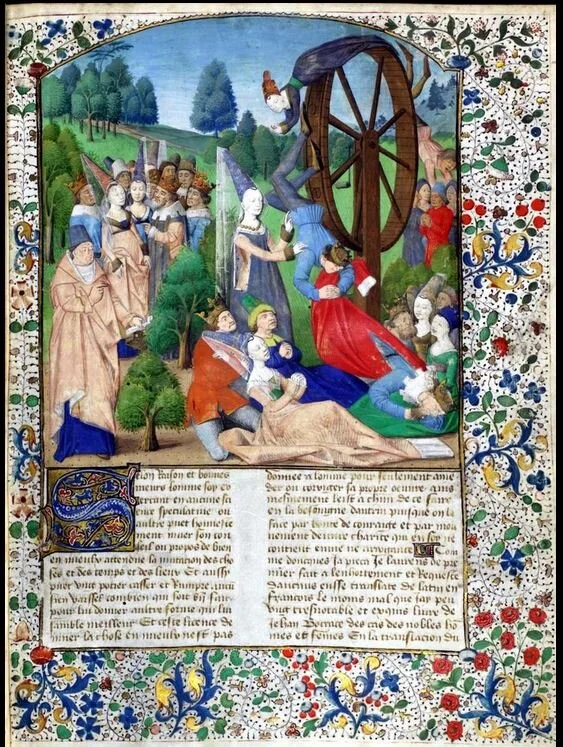Fortunate Fall from the Wheel of Fortune
Middle Ages view of the Wheel of Fortune - Boccaccio via Wikipedia / Rota Fortunae
Great news! I have uncovered a better way to choose presidential candidates, something that gets rid of soundbites and fearmongering, something that eliminates huge-money influxes from influencing elections. It’s suitable for both major parties, and would work for third-, fourth-, and fifth-party candidates as well. I have examined the process from several angles and determined that it’s as logical as any of the current methods and far more ethical and humane—although I know that those two qualities are not important for either the campaign process or the candidates.
The method involves setting up giant wheels in Reno containing the names of every candidate for a particular party. Wait—Wheels of fortune? Some people may point out that this sounds suspiciously like a certain TV show and may be subject to copyright infringement lawsuits, but that view lacks a historical perspective. The idea of a wheel of fortune has been around since the zodiac was invented, so I’m not afraid of being sued by Pat Sajak or his handlers, or by any casinos.
The advantage? Candidates would not be able to waste months of our time with promises of more jobs, fewer taxes, pretend budgets, fewer fears, or more cowbells.
The disadvantage? It would put untold scores of pundits and lobbyists out of work. On the other hand, maybe that's an advantage.
One other change—one of the candidate categories must be “None of the Above.”
I’m still working on the Vanna White angle.




